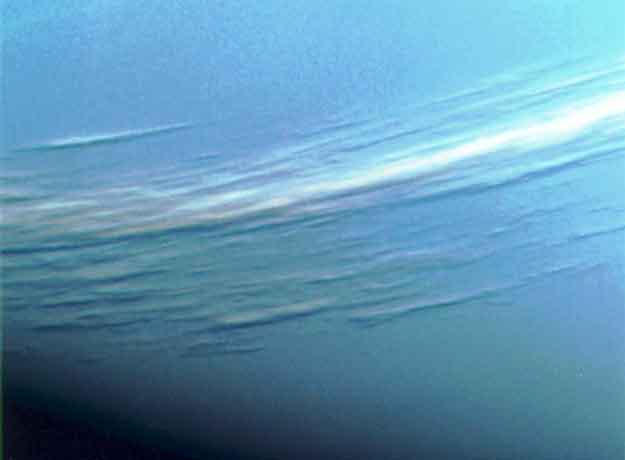Two Hours Before Neptune

Explanation:
Two hours before closest approach to
Neptune in 1989, the
Voyager 2 robot spacecraft snapped
this picture.
Clearly visible for the first time were long light-colored
cirrus-type clouds floating high in
Neptune's atmosphere. Shadows of these clouds can even
be seen on lower cloud decks.
Most of
Neptune's atmosphere is made of
hydrogen and
helium, which is invisible.
Neptune's blue color therefore comes from
smaller amounts of atmospheric
methane,
which preferentially absorbs red light.
Neptune has the fastest winds in the
Solar System, with gusts reaching 2000 kilometers per hour.
Speculation holds that
diamonds may be created in the
dense hot conditions that exist under the clouds-tops of
Uranus and Neptune.
Authors & editors:
Robert Nemiroff
(MTU) &
Jerry Bonnell
(USRA)
NASA Web Site Statements, Warnings,
and Disclaimers
NASA Official: Jay Norris.
Specific
rights apply.
A service of:
LHEA at
NASA /
GSFC
& Michigan Tech. U.

